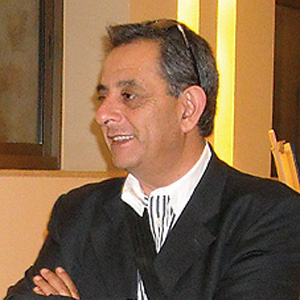I often play online games on my laptop. I play with people from all over the world whom I don’t even know, and my profile picture is, of course, the Palestinian flag! Does the flag stir a reaction? Well, almost always. I am pleased when I get the thumbs-up icon, or Viva Palestina! I estimate that 30 to 40 percent of the comments I get are supportive of Palestine; some are quite heartwarming in fact. The other reactions, however, are not only vicious but extremely harsh; clearly a reflection of the commentator’s utter anger at seeing the Palestinian flag, which obviously hits a raw nerve. As one would expect, the anti-Palestinian comments all boil down to associating Palestinians with violence, and specifically with terrorism. When this happens, the online game switches to being an online fight! More importantly, though, is my point that Palestinians are still stigmatized by many as terrorists.
Paradoxically, on the other hand, Palestinians across the board feel that they have been subjected to possibly the greatest injustice in human history. An exaggeration, no doubt, when we consider what the Spaniards did to the Mayan and the Aztec peoples or what the Americans did to the Native Peoples. In the Palestinian psyche, however, they have been the victims of grave injustice. The cherry on top is to be labeled terrorists! What went wrong and how we got to this point is beyond the scope of this short column; but no matter how long it takes, I believe that the Palestinian narrative will eventually prevail and justice will be attained. My consolation comes from the amazing perseverance of Palestinians, sumud, and their staunch adherence to their cause. The new generations of Palestinians are even more adamant than the older ones – a point that gives us hope.
Justice is possibly the single, most basic human-rights demand of all Palestinians. Rather than speaking of the problematic political reality, many activists, in fact, only emphasize the human-rights dimension, given that it’s the language most easily understood by the West. The local Palestinian, however, is not concerned with macro (in)justice; rather it is the daily obscene humiliation that practically all Palestinians endure at checkpoints and elsewhere. It is the confiscation of the farmer’s piece of land, the degrading wait to get a permit to go and pray in Jerusalem or to go visit a family member in an Israeli prison. The list is long, but this is the typical yearning of the average Palestinian day in, day out.
Plato, John Locke, and other philosophers all argue that the concept of justice is universal and even a natural law that should be attained sooner or later. I’d like to believe that. I also like the quote on justice from the late Desmond Tutu: “If you are neutral in situations of injustice, you have chosen the side of the oppressor.” Finally, the words of Bobby Sands sum up my sentiments quite well, although I would replace the word “revenge” with “poetic justice.” “Revenge will be the laughter of our children.”
At the end of the online game, I normally say: “Didn’t your mother ever tell you not to pick a fight you can’t win?”
Peace to all.


